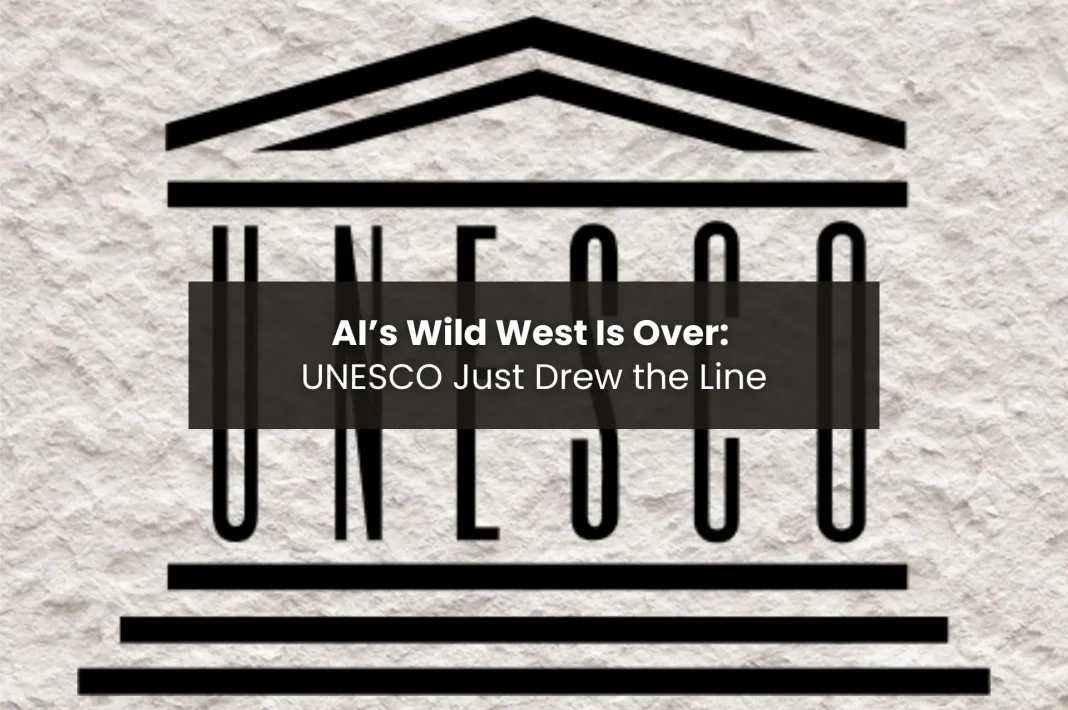If you’re still thinking AI is some far-off sci-fi fantasy, congratulations, you’ve already missed the moment. These conversations are actively shaping how tools are built, used, and regulated. That’s why UNESCO‘s 3rd Global Forum on the Ethics of Artificial Intelligence, held in Bangkok from June 24 to 27, 2025, was more than just another event. It was a global reckoning. With 1,200 delegates from 88 countries and participation from over 35 ministers, the message came through loud and clear. AI governance is no longer a choice, especially in areas where content creation and technology meet.
The 2021 Recommendation on the Ethics of AI
Let’s rewind a little. Back in November 2021, all 193 UNESCO member states did something rare, and they agreed. The result was the world’s first-ever global standard-setting instrument on AI ethics. Known as the Recommendation on the Ethics of Artificial Intelligence, this wasn’t just a soft moral guideline. It was a wake-up call, laying the groundwork for sturdy AI governance.
The Recommendations focus on key principles that aren’t negotiable in the age of algorithmic decision-making. We’re talking about transparency, fairness, accountability, and above all, the safeguarding of human rights. In a world flooded with automation, especially in critical sectors like education, healthcare, and even AI for content creators, this recommendation acts like a moral compass. AI governance rooted in such standards isn’t just about rules; it’s about values. You know the toughest ethical questions about AI that we’re still struggling to answer, from surveillance to deepfakes, it’s not as black-and-white as you think.

Essential Updates
Global Networks Advancing AI Governance
A key highlight of the forum was the launch of two global networks to boost international cooperation in AI governance. The Global Network of AI Supervisory Authorities connects national regulators to share insights and align standards. Alongside this, the Global Network of Civil Society and Academia ensures that AI governance stays inclusive by giving NGOs and researchers a formal seat at the table. With this, UNESCO reinforced that ethical AI must be collaborative, not confined to just governments.
Implementing AI Governance with Real Tools
Theory without practice is simply just easier said than done. Recognizing this, UNESCO focused heavily on turning principles into policies. The highlight here was the unveiling of the Readiness Assessment Methodology (RAM). Not the computer one. This tool helps nations evaluate how prepared they are to integrate ethical AI governance within their national frameworks. RAM has already been piloted across 70 countries, including several ASEAN nations (the Association of Southeast Asian Nations), making it a scalable and adaptable tool. It covers institutional readiness, policy architecture, and societal engagement. This allows governments to identify gaps and recalibrate their AI models accordingly.
Regional Cooperation and AI Governance
AI governance cannot be one-size-fits-all. This point was clearly demonstrated through regional case studies presented during the forum. Indonesia, for example, has begun embedding UNESCO’s principles into its national digital policies. It is actively collaborating with the public and private sectors to align AI deployment with human-centric values. In fact, Malaysia took a broader approach, using the forum to advocate for regional collaboration across ASEAN. Its representatives stressed the need for harmonized standards that reflect both ethical aspirations and regional context. These country-level efforts show that while UNESCO sets the global stage, the real action happens at the national and regional levels. Explore the challenges of AI in military operations, where governance decisions can quite literally be life or death.
Significance of Ethical AI Governance
AI isn’t just changing how we live. It’s reshaping power, access, and control. In this landscape, ethical AI governance isn’t a choice; it’s a shield and necessity. UNESCO sees AI governance as more than managing risks. It’s about building a system where innovation meets accountability. One that protects rights, ensures transparency, and earns public trust, because people trust AI with closed eyes, and as the global tensions rise and inequalities widen, AI governance becomes the stabilizer we can’t ignore. Without it, AI won’t bridge gaps; it’ll deepen them with more hallucination and lose the trust of its audience.
In a Nutshell
UNESCO’s 3rd Global Forum marked a pivotal step in global efforts to strengthen ethical AI. From launching international networks to pushing for policy implementation tools, it was a powerful reminder that this conversation is just beginning. The forum made it clear that AI governance is not a luxury or an afterthought. It is an urgent necessity. Whether through international cooperation, regional efforts, or grassroots engagement, the call is clear. AI governance must be ethical, inclusive, and enforceable. And UNESCO is determined to make that happen. So you can take a chill pill while AI does your work, how cool is that?
Until we meet next, scroll!
